Squash is a delicious MULTIPURPOSE vegetable, rich with vitamin C, and can be used in a VARIETY of dishes.
It can be enjoyed all year round if STORED properly, but most people find it challenging to keep squash.
But you don’t need to WORRY about this, as EXPERTS are here to provide you with the information you need. Our years of gardening experience definitely HELP you a lot.
Keep your squash FRESH and READY by following a few simple steps.
LEARN how to store squash and what things to CONSIDER before keeping it.
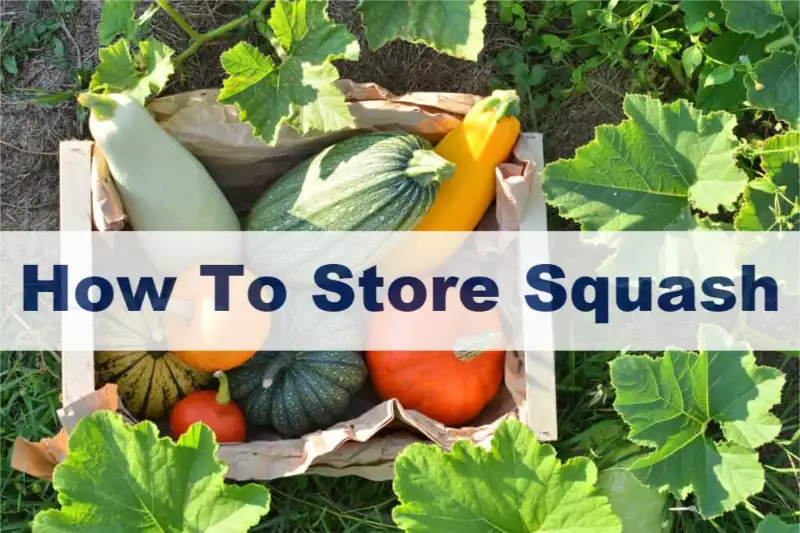
Difference Between Winter Squash and Summer Squash
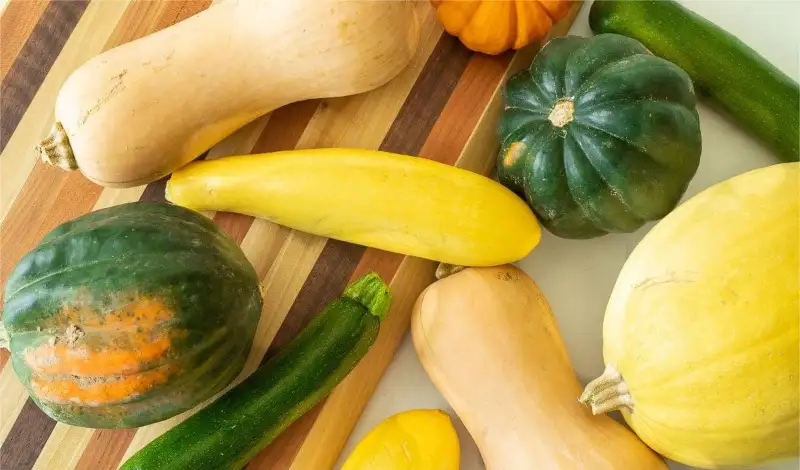
Summer Squash:
As the name indicates, it is HARVESTED in the summer, containing tender soft skin and soft seeds.
Usually, it is eaten as raw or cooked squash and has a MILD-sweet flavor as it contains natural sugars. Get this?
It is typically SMALLER and SPHERICAL than winter squashes.
Examples are:
- Zucchini
- Yellow squash
- Pattypan
Winter Squash:
Contrarily, harvest winter squash in the LATE FALL. It contains tough skin and hard shells that need to be separated from the flesh.
Winter squash is usually ROASTED or BAKED; its flesh is often used in soup, stews, and many other DISHES.
It is larger and more round in shape, and its seeds are also bigger and harder to eat.
Examples of winter varieties are:
- Butternut squash
- Acorn squash
- Spaghetti squash
In short, summer and winter squash varies from each other in the
- Time of harvest
- Skin
- Seed and shape
- Texture
- The way they are cooked.
Suggested reading: Squash Plant Identification
Storage Conditions of Squash
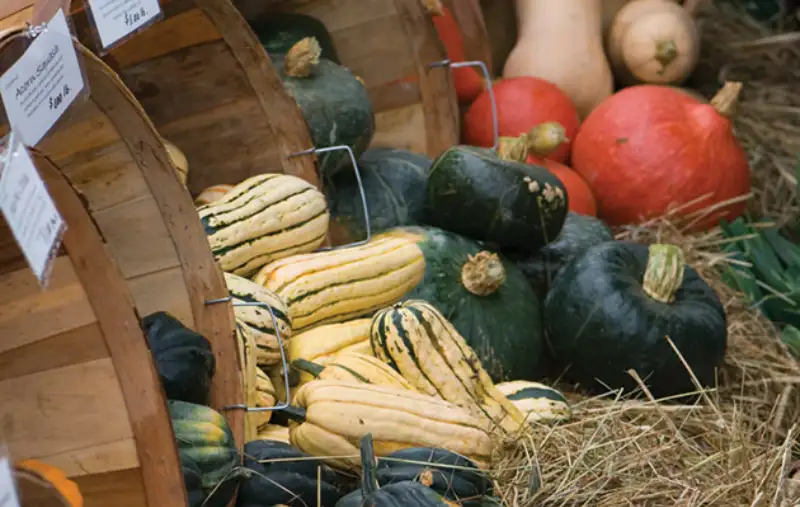
WELL! You can KEEP squash in a cool, dark place with VENTILATION. The storage area temperature must be between 50-55°F.
- Avoid storing in DIRECT sunlight or areas with HIGH humidity.
- LISTEN! Don’t save squash near ethylene gas-releasing fruits like apples, bananas, or pears.
- It is better to keep squash IN SUCH A WAY, so they do not touch each other or any hard surface.
- Wrapping every other squash in a piece of paper is HELPFUL to allow for proper air circulation. Still, it is more challenging to KEEP checking on them.
- ENTIRE squash can last up to 2-4 months under IDEAL conditions and depending upon the variety.
- But a cut one should be consumed within a week. For long storage life, store it in an airtight bag in the refrigerator.
What to Consider When Storing Squash?
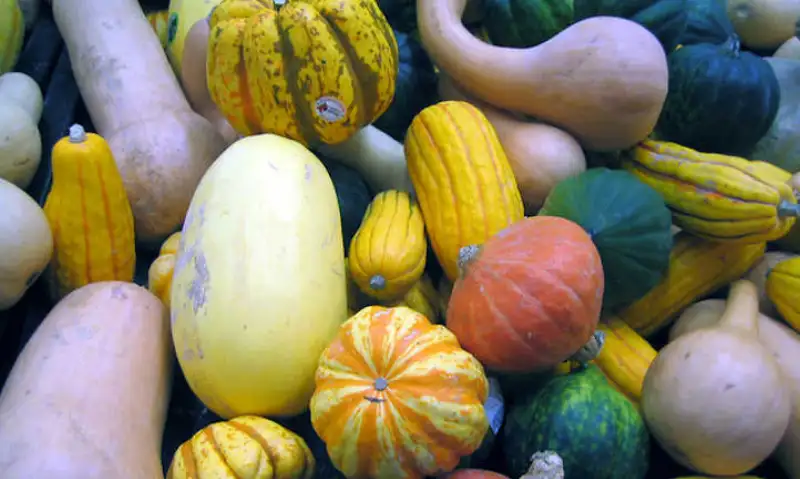
Storing winter squash or a summer one in a SMALL amount is EASY, but large quantities can be tricky. However, you can keep the squash in both quantities by considering specific requirements.
The squash keeps longer if you can slow its respiration rate. That is done by lowering the temperature. Isn’t that awesome?
So when determining the proper storage place, start by monitoring temperature.
Even a slight REDUCTION in the temperature increases the time for storing. The optimum range of temperature for most squash is 50-55°F.
Good VENTILATION is also necessary to store winter squash. It helps to prevent rot by maintaining uniform temperature and humidity.
Apart from the temperature, keep it CONSIDER to store only fully ripe squash. Unripe ones will not ripen further, and overripe squash will SPOIL quickly.
Don’t forget to wrap squash in plastic bags to prevent moisture LOSS and PROTECT it from other food.
If the squash has DAMAGED skin, it is better to use it first; otherwise, this will AFFECT its shelf-life.
Suggested reading: Squash Leaves Turning Yellow?
How to Store Squash Properly?
Proper storage of squash is ESSENTIAL to ensure its freshness and quality.
But there are SPECIFIC REQUIREMENTS kept under consideration for keeping squash properly.
These conditions usually depend upon the type of squash you want to keep.
Let’s see which conditions are required for summer and winter squashes.
How to Store Winter Squash:
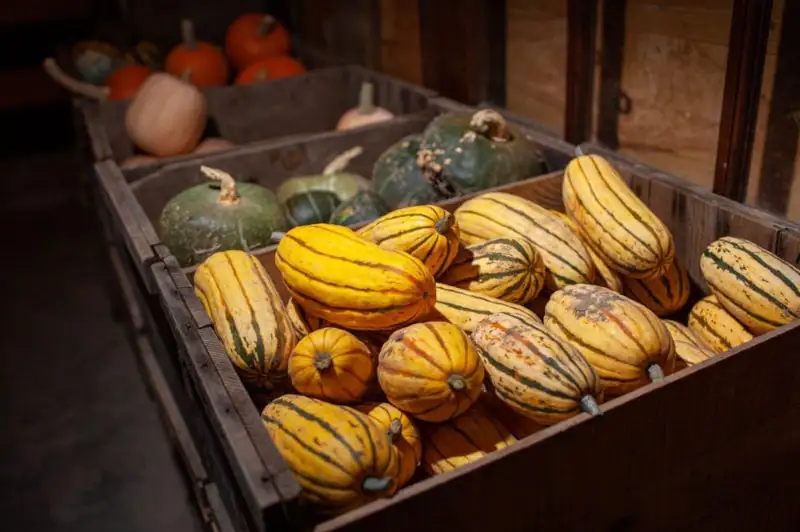
When you harvest winter squash, wash squash or CLEAN it with a dry cloth to REMOVE dirt and debris. KEEP the skins of cured squash dry to prevent the growth of molds.
Lay them in a single layer and store them in an area with a LOW temperature and relative humidity. Keep the squash dry during storage.
Proper CURING of these fruits gives them the hard skin that keeps out molds and rot.
Storing also REDUCES the fruit’s respiration rate, making its shelf life long.
To cure winter squash properly, one MUST consider these points.
Dry Storage:
You STORE your other winter squash all winter long in DRY storage, depending on the TYPE you are keeping. Want to hear how awesome is this?
SQUASH won’t last long if you store them in high-humidity areas.
It can also last for a few months if you cure it on chicken wire.
Refrigeration:
Hence squash should NEED to be stored in a place with good AIR circulation. Refrigeration isn’t a GOOD option for long-term storage.
But you can keep your squash in freezer containers for LONG-TERM use.
Keep it in a poly bag or airtight container in the freezer for up to 3-4 months.
Storage:
Different KINDS of squash have different storage TIMES and temperatures. So it is BEST to store them separately.
For example,
Winter squash, including butternut and acorn squash, can be cured for up to 3 months. While summer squash, like Pattypan squash, should only be stored for one week.
How to Store Summer Squash:
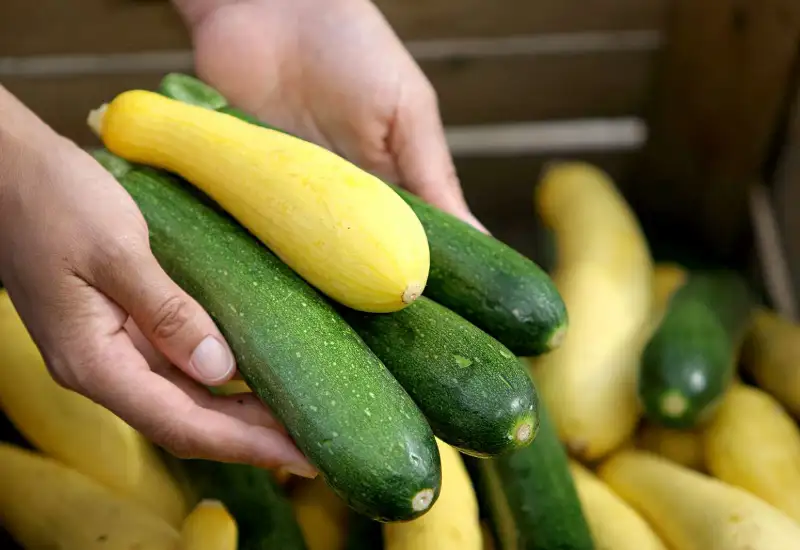
It has THINNER skin and usually doesn’t require CURING at all.
Summer squash, including zucchini squash, can be STORED in the refrigerator for 1-2 weeks.
It should be stored in a perforated bag or in an air-tight container to maintain its FRESHNESS. Cool, right?
As for the freezer, it can be stored for up to 6-8 months.
To freeze, it should be BLANCHED and COOLED. Also, it is stored in freezer-safe bags or containers.
Blanching helps PRESERVE the texture and flavor, and cooling prevents bacteria growth.
How to Harvest Squash Successfully?
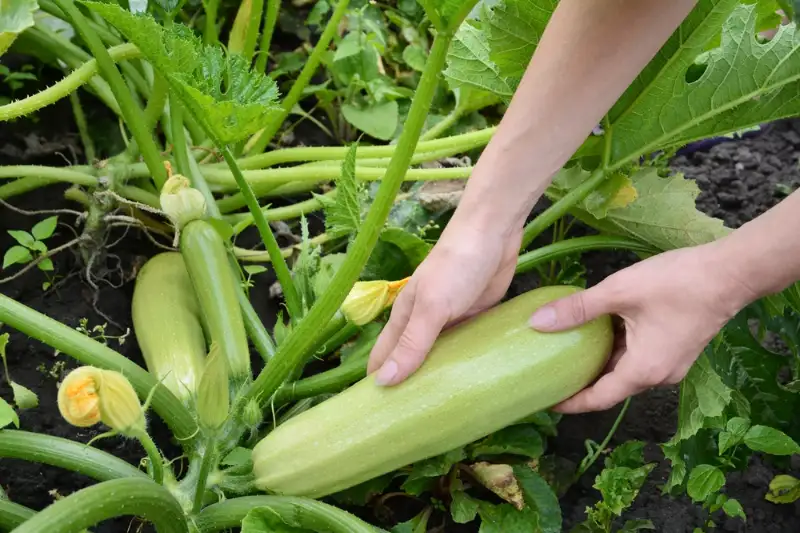
In order to harvest squash successfully, must follow these points.
1. Wait till Maturity:
You can harvest the summer squash throughout the summer. In contrast, winter squashes must be picked at the END of the summer. Whichever the type is, try to harvest at the end of the growing season.
Winter squash DEEMS tasty once matured, but a summer one is BELIEVE to be the best when harvested young. Do not harvest wet fruit.
To harvest squash, wait until it is FULLY mature. Check the maturity by gently pressing the skin with a thumbnail.
If you feel hard skin, it isn’t ready. It is an immature squash.
In contrast, winter squashes have hard skin that cannot be punctured with a nail when it matures.
Don’t wait until the FIRST frost, when the fruit REACHES maturity. The squash that is hit with frost will not RIPEN or store well.
Check the color of the vine; the fruit ISN’T READY for harvest if the stem is green and flexible.
2. Cut:
Use a SHARP blade to cut the vine of the squash, leaving a 1-2 inches stem with the fruit. DON’T tug or pull from the vine.
3. Handling:
As squash has DELICATE skin, handle your fruit gently to prevent damage after cutting. It is because these INJURIES provide a path to various rot-producing organisms.
4. Curing:
Cure the harvested squash in a cool, dry place for a few days. Curing helps to HARDEN the skin and heal the cuts and soft spots on the skin. It will also help EXTEND its storage life.
How Long Can Squash Be Stored?
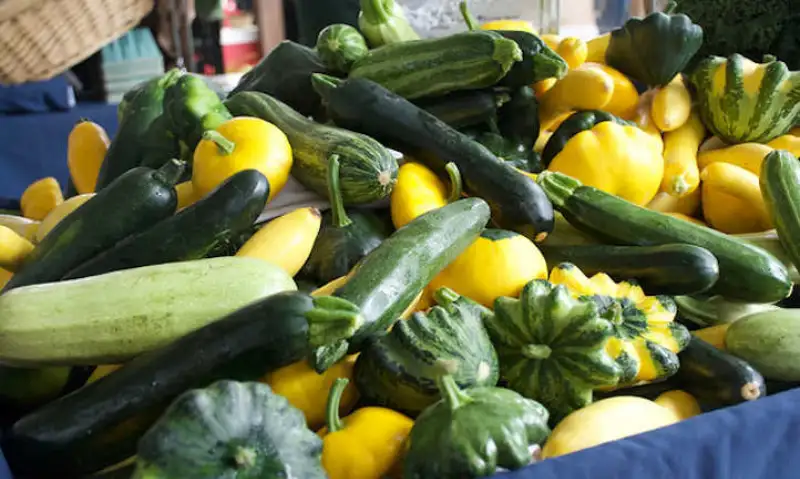
The DURATION of time squash can be stored depends upon the type of squash and how it is stored.
But the UNCUT winter squash can be cured in a cool, DRY SPOT for up to 2-4 months. At the same time, you can store CUT winter squash in the refrigerator for about five days.
Use the air-tight container to MAXIMIZE its storage life.
Contrarily, you can use summer squash within 5 to 7 days, but it is better to eat quickly. It is because they have a SHORTER shelf life than winter squash.
It is CRUCIAL to check for signs of spoilage and discard any squash with any sign of it.
Saving squash properly and using it PROMPTLY ensure its freshness and safety.
FAQs about How To Store Squash
1. Does squash last longer in the fridge or on the counter?
As MENTIONED above, you can store the UNCUT squash last longer on the counter or the fridge.
But a cut squash can only be stored for up to 5-7 days on the counter.
It is because cut squash is more EXPOSED to air and thus more susceptible to spoilage. The skin of the whole squash provides a BARRIER that helps to protect it.
2. How do you store fresh sliced squash?
Store freshly SLICED squash in a container or plastic bag that seals WELL.
Squeeze out MUCH AIR as possible from the container to REDUCE air exposure.
Finally, store the container in the refrigerator for up to five days.
3. What happens if you don’t blanch the squash before freezing?
Blanching stops enzyme actions. This helps to PRESERVE the flavor and nutrient content of your fruit.
Blanching works EXCELLENT if you heat 1 gallon of water to bubbling in a large pot fitted with a wire basket. Afterward immersing them in ice water.
· Without blanching, its flavor becomes FADES.
· Squash also turns yellow or gray if it is not blanched, IMPACTING its appearance and quality.
· Blanching also reduces spoilage risk by preventing squash from bacteria, yeast, and molds.
4. How do you know if squash is expired?
If the squash appears DULL or shriveled, or there is any sign of mold, it may go bad and NEED to be discarded.
You can also check whether the squash is expired by its smell. Bad squash will have a SOUR or fermented smell.
If you are in any doubt, it is better not to use squash. Eating bad squash can cause POISONING and other life-threatening problems.
What’s Next
You have got many details about storing squash.
The storage life of cured winter squash in ideal conditions is up to 3-4 months. But other types of squash only last five days.
It is BETTER to provide your fruit with good storage conditions if you want to store them for months. Because improper storage results in spoilage.
That’s all!
If you INTEND to LEARN more about squash and other fruits, VISIT AsterGardening.
We provide you with our QUALITY techniques. So, if you get any ROADBLOCK in your garden, REACH out to us.
